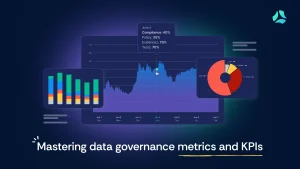
If you are looking for a career in finance, you will want to understand some of the principles and concepts that govern the field. The key to sound financial management is consistency. Accounting principles and concepts require businesses to record their financial transactions at the cost they incurred them in, regardless of whether or not they are paid in cash. This gives you a true picture of your business’ financial performance. However, there are a few important concepts you should be aware of.
First, accounting principles and concepts determine the structure and format of financial statements. Generally, a multinational company will deposit accounts in the same manner as a small business. It is important to remember that international accounting standards vary from country to country, and this can cause some issues when comparing financial statements between companies. Accounting principles and concepts are also prescriptive, which means that every business must adhere to these rules and be transparent about their financial transactions.
Accounting principles are fundamental elements of financial reporting. Without them, accounting information would be meaningless. Likewise, principles and concepts form the foundation for more advanced rules and standards, such as international financial reporting standards and country-specific GAAP. The following are just a few of the more important principles and concepts of accounting. You should learn as much as you can about them, and apply them as necessary to ensure accurate, reliable, and complete financial statements.
Fundamental concepts and rules are crucial for the proper implementation of accounting in business. Generally accepted accounting principles (GAAPs) are guidelines that businesses should follow when preparing financial statements. These principles provide a consistent, reliable, and meaningful way to report financial information. In addition to these rules, accounting principles and concepts are required by law for publicly-traded companies. Once you’ve studied them, you’ll be better equipped to use them in your business.
The basic principles of accounting can be summarized as follows: Revenue is recorded when it is realised, which means the legal right to receive money. If you sell goods, you have realised revenue if the customer receives ownership of them. However, if you sell products, the transaction does not occur until the customer actually receives the goods and pays for them. Then, it is time for the money to be received. These are just a few of the principles and concepts that can help you understand financial reporting.
Another important concept is the accrual principle. With this principle, transactions are recorded in the period in which they happen, without accounting for their associated cash flow. In addition, the accrual principle is important because it forms the basis for adjusting entries during the accounting cycle. Similarly, the consistency principle says that the company must apply the same accounting principles in the future. If the business continues to use accrual accounting, it will have to follow the same principles and concepts as it does today.
A business entity is an object with many properties. It is an entity, a thing, or a group of things with a legal existence. A business entity is made up of a series of records that form its proper existence. Whether it’s a business or a partnership, the separate entity concept is the basis for accounting. The two primary concepts of accounting are income statement and balance sheet. It is a way to keep track of the financial performance of the business.






